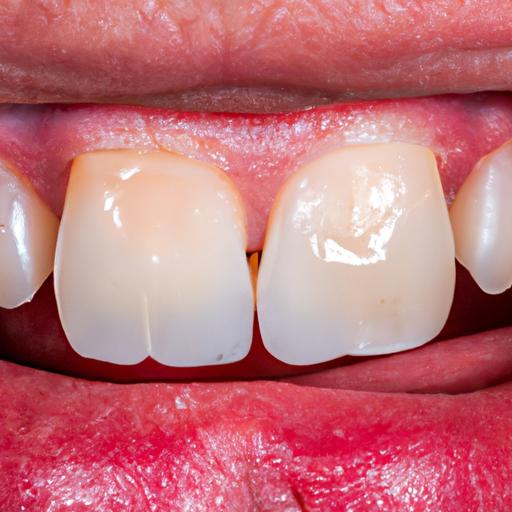
Learn about the causes, management, and prevention of wisdom tooth extraction bleeding after 3 days. Find out how to promote a smooth recovery.
Introduction
If you’ve recently undergone wisdom tooth extraction, it’s essential to be aware of the potential complications that may arise during the recovery period. One common concern is bleeding, which is a natural part of the healing process. In this article, we will discuss wisdom tooth extraction bleeding after 3 days, including its causes, how to manage it, and preventive measures for a smooth recovery.

Understanding Wisdom Tooth Extraction Bleeding
Understanding Wisdom Tooth Extraction Bleeding
After the extraction of wisdom teeth, it’s normal to experience some bleeding. Initially, bleeding is expected to be more pronounced immediately following the procedure, but it should gradually subside within the first 24-48 hours. However, if bleeding persists or worsens after 3 days, it may indicate an underlying issue that requires attention.

Causes of Prolonged Bleeding after 3 Days
Causes of Prolonged Bleeding after 3 Days
1. Inadequate Blood Clot Formation
The formation of a blood clot is crucial for the healing process after tooth extraction. However, if the blood clot fails to develop or is dislodged, it can lead to prolonged bleeding. Several factors can contribute to inadequate blood clot formation, such as poor oral hygiene practices or smoking, which can disrupt the healing process.
2. Dislodged or Dissolved Blood Clot
Sometimes, a blood clot may form initially but become dislodged or dissolve prematurely. This can expose the underlying tissues, resulting in bleeding after 3 days. Vigorous rinsing, spitting, or drinking through a straw can increase the risk of dislodging the blood clot, prolonging the bleeding.
3. Biting on Extraction Site
Accidentally biting on the extraction site can cause trauma and disrupt the healing process. This trauma can lead to bleeding, especially if it occurs after 3 days. It’s crucial to be cautious while eating or chewing to avoid any unnecessary pressure on the extraction site.
4. Underlying Medical Conditions
Certain medical conditions or medications can interfere with the body’s natural clotting mechanisms, leading to prolonged bleeding after wisdom tooth extraction. Conditions such as hemophilia, liver disease, or the use of blood-thinning medications can impact the body’s ability to form clots effectively.

Managing and Preventing Wisdom Tooth Extraction Bleeding after 3 Days
Managing and Preventing Wisdom Tooth Extraction Bleeding after 3 Days
1. Home Remedies for Managing Bleeding
- Apply gentle pressure: Gently bite down on a clean gauze pad or moist tea bag to help promote blood clot formation and control bleeding.
- Cold compress: Applying a cold compress on the cheek near the extraction site can help constrict blood vessels, reducing bleeding and swelling.
- Saltwater rinse: Rinse your mouth gently with warm saltwater to keep the area clean and minimize the risk of infection.
2. Tips for Promoting Blood Clot Formation
- Maintain good oral hygiene: Brush your teeth gently, avoiding the extraction site, and rinse with an alcohol-free mouthwash to prevent infection and promote healing.
- Avoid smoking and alcohol: Smoking and alcohol consumption can delay the healing process and increase the risk of bleeding. It’s best to abstain from these habits during the recovery period.
- Eat soft foods: Stick to a soft food diet to minimize chewing near the extraction site and reduce the chances of accidentally biting on it.
3. Do’s and Don’ts for a Speedy Recovery
- Do follow post-operative instructions: Carefully adhere to the instructions provided by your oral surgeon or dentist. These instructions are tailored to your specific case and will help ensure a smoother recovery.
- Don’t engage in strenuous activities: Avoid activities that can increase blood pressure or strain, as they may exacerbate bleeding.
- Do rest and take it easy: Give your body ample time to heal by getting plenty of rest and avoiding unnecessary stress.
4. When to Seek Professional Help
If bleeding persists or worsens after 3 days, it is crucial to seek professional help. Contact your oral surgeon or dentist immediately for further evaluation and guidance. They will be able to assess the situation and provide appropriate treatment to address the underlying cause of the prolonged bleeding.
In conclusion, while some bleeding is normal after wisdom tooth extraction, prolonged bleeding after 3 days can be a cause for concern. By understanding the potential causes, actively managing the bleeding at home, and following preventive measures, you can ensure a smoother recovery process. If you experience persistent or worsening bleeding, don’t hesitate to consult your dental professional for further assistance. Remember, a little extra care goes a long way in promoting a successful wisdom tooth extraction recovery.
Relevant Internal Links:, How Long is Recovery After Wisdom Teeth Extraction?, Wisdom Tooth Extraction Recovery: Day 3, Wisdom Tooth Removal: What You Need to Know







